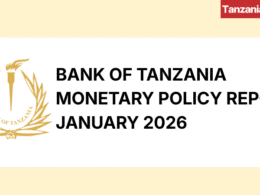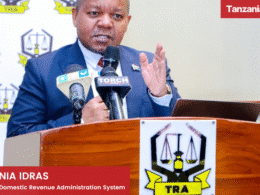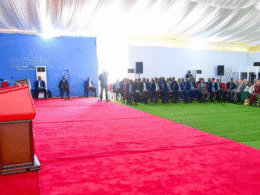The Bank of Tanzania (BOT) has just released its Economic Bulleting for the Quarter Ending September 2021, revealing that the economy grew by 4.3% in the quarter ending June 2021.
This is higher than 4.0% in the corresponding quarter in 2020, mainly driven by agriculture; transport and storage; trade and repair; manufacturing; mining and quarrying; and construction.
Information and communication recorded the highest growth rate of 12.3% attributable to an increase in usage of digital mobile services, expansion of broadcasting and internet services.
Electricity grew by 12.1% to 1,764 million kWh from 1,589 million kWh registered in the corresponding period a year earlier, mainly due to an increase in distribution.
Accommodation and food services grew by 10.1%, an improvement from a negative growth rate in the similar quarter in 2020, signaling improvement from the impact of the pandemic.
Extrernal Sector Performamce
The performance of the external sector was satisfactory despite the adverse effects posed by the ongoing COVID-19 pandemic.
During the quarter ending September 2021, the overall balance of payments recorded a surplus of USD 1,587.2 million compared to a deficit of USD 243.6 million in the corresponding quarter in 2020 due to an increase in foreign financial inflows.
Meanwhile, the current account deficit moderated to USD 304.7 million, from a deficit of USD 373.2 million in the corresponding quarter of 2020, owing to a rise in the exports of services.
During the quarter ending September 2021, the value of goods exports rose by 15.0% to USD 1,962.8 million compared with the same quarter of 2020.
This outturn was due to improved performance in non-traditional exports, especially horticulture, cereals and manufactured goods.
Traditional exports value increased to USD 173.2 million from USD 69.8 million, supported by exports of tobacco, cloves, and cotton.
Economic Development in Zanzibar
Zanzibar’s economy recovered in the second quarter of 2021, with a GDP growth of 6.5% compared with a contraction of 1.4% in the corresponding quarter of 2020 and 2.2% from the preceding quarter.
The robust growth was largely due to the resumption of economic activities, particularly those directly linked with tourism.
Much of the growth was driven by accommodation and food services, electricity and public administration.
The share of accommodation and food services to real output growth increased to 4.7% from a contraction of 8.2% in the corresponding quarter in 2020.












